Specialized Crux DSW Comp: race-ready US alloy featherweight vs British gravel
The aluminium Crux shares many of the benefits of the carbon model but at a more wallet-friendly price point
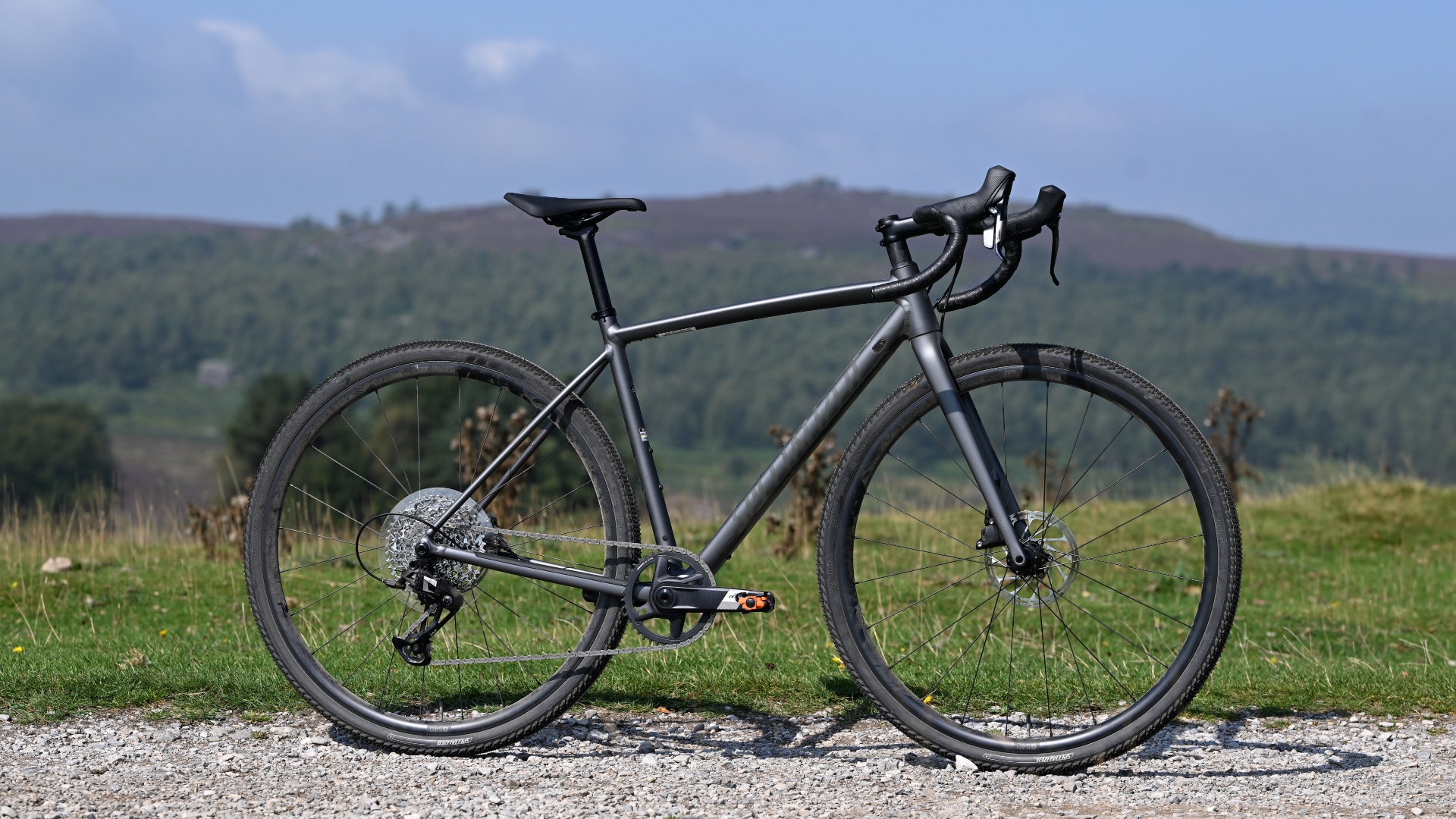
You can sit down and spin on the Crux but it both encourages you to and excels when ridden hard, it’s not difficult to understand its CX roots. A word of warning, this bike will make your legs burn. So whilst this is most definitely a bike designed to be ridden fast, there’s scope to adjust the set up for longer and possibly more leisurely rides. It’s this flexibility that really increases the Crux’s value for money and pushes it above the others to become 'Best for Speed' category winner in our Gravel Bike of the Year 2024 Awards.
-
+
Affordability
-
+
Fun and fast
-
+
Flexibility and ease of set up and fit
-
-
Tyres not suited to UK conditions
-
-
Only one build available
You can trust Cycling Weekly.
This year Specialized launched the first alloy version of the Crux at a far more accessible price point than its carbon siblings. Our North American editor has already had a chance to ride and write about it, now it’s time to see how it performs on British gravel and against five other bikes, as tested for CW’s 2024 Gravel Bikes of the Year.
The Crux became the 'Best for Speed' category winner in our Gravel Bike of the Year 2024 Awards, with its rapid ride making it the most suitable for those seeking off-road pace.
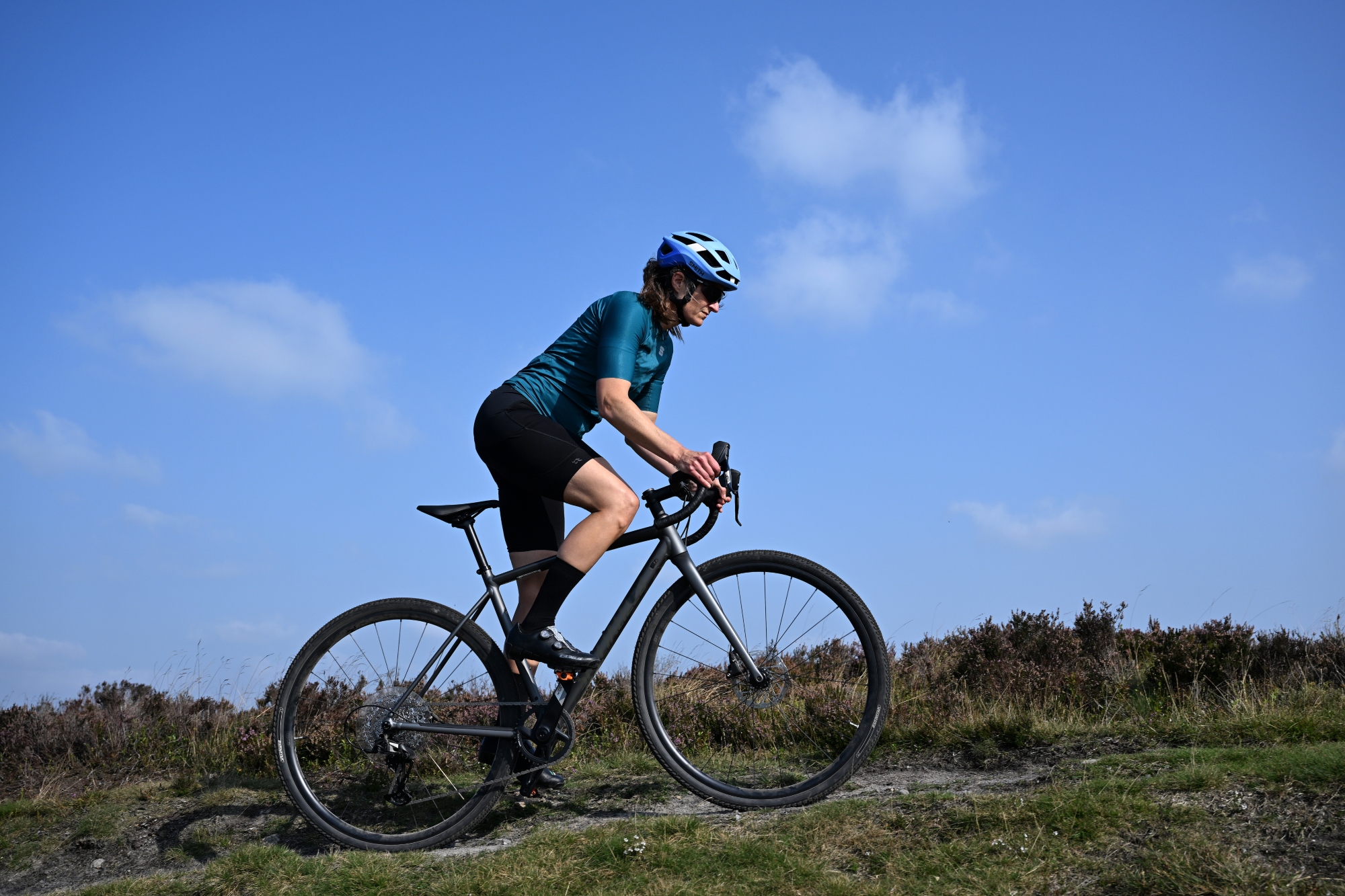
The Crux DSW is fast...and a lot of fun
The frame
In developing the DSW alloy frame, Specialized have stayed true to the design and purpose of the carbon Crux. This is a bike designed to be ridden hard.
The results of intensive R&D in the frame design and production have allowed Specialized to produce – it claims – “lightest alloy frame in the world” (claimed weight 1,399g). Crucially for a gravel bike, Specialized claim the technology also produces a frame that’s much more durable than other alloy bikes whilst still having an “improved ride quality”. A clearly visible example of where this all comes together is the single-piece down tube and bottom bracket which eliminates weight and unwanted rigidity at the heart of the frame.
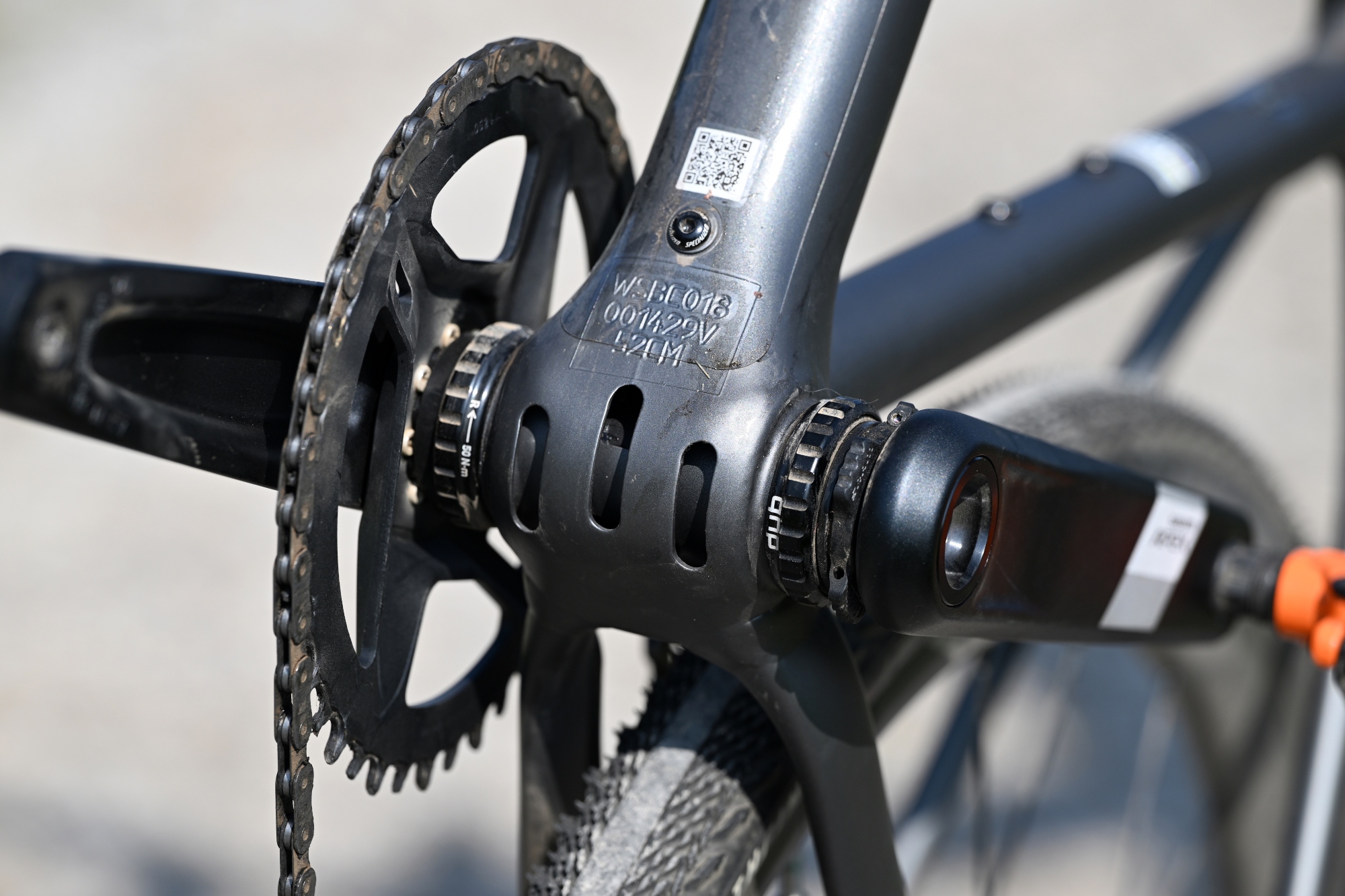
The Crux's frame design utlises advanced production methods to keep the weight down
There are six sizes available from 49cm through to 61cm frames. Head (71.25) and seat tube (74.0) angles are almost identical to the other race orientated bikes in our group test, the Ridley Kanzo and Canyon Grail. To keep the back end tight and fast chainstays are a minimal 425mm and the wheelbase 1014mm. At 462mm the frame reach is very similar to the other two race bikes and stack falls in the middle (547mm).
The frame itself is capable of housing full mechanical and Di2 wiring but only as 1x set up. There is the scope to run tyres up to 47mm on 700cc wheels or swap to 650B up to 2.1” for shorter term comfort.
True to its heritage, like the carbon version, there is no excess on the DSW with just standard bottle mount bosses rather than multiple rack and guard mounts.
The latest race content, interviews, features, reviews and expert buying guides, direct to your inbox!
The Crux DSW isn’t entirely alloy. For weight saving and comfort the DSW is equipped with the same S-Works carbon fork as the full carbon bikes.
The build
The most striking feature of the Crux DSW is its simplicity: straight tubes, simple semi-internal cabling, standard bar and stem: nothing to charge, nothing to spend hours fiddling to set up, no proprietary parts that require specialist tools. This feels quite a contrast to a number of other race gravel bikes where design is being slowly drawn towards the fickle nature of one-piece carbon aero and all its awkwardness.
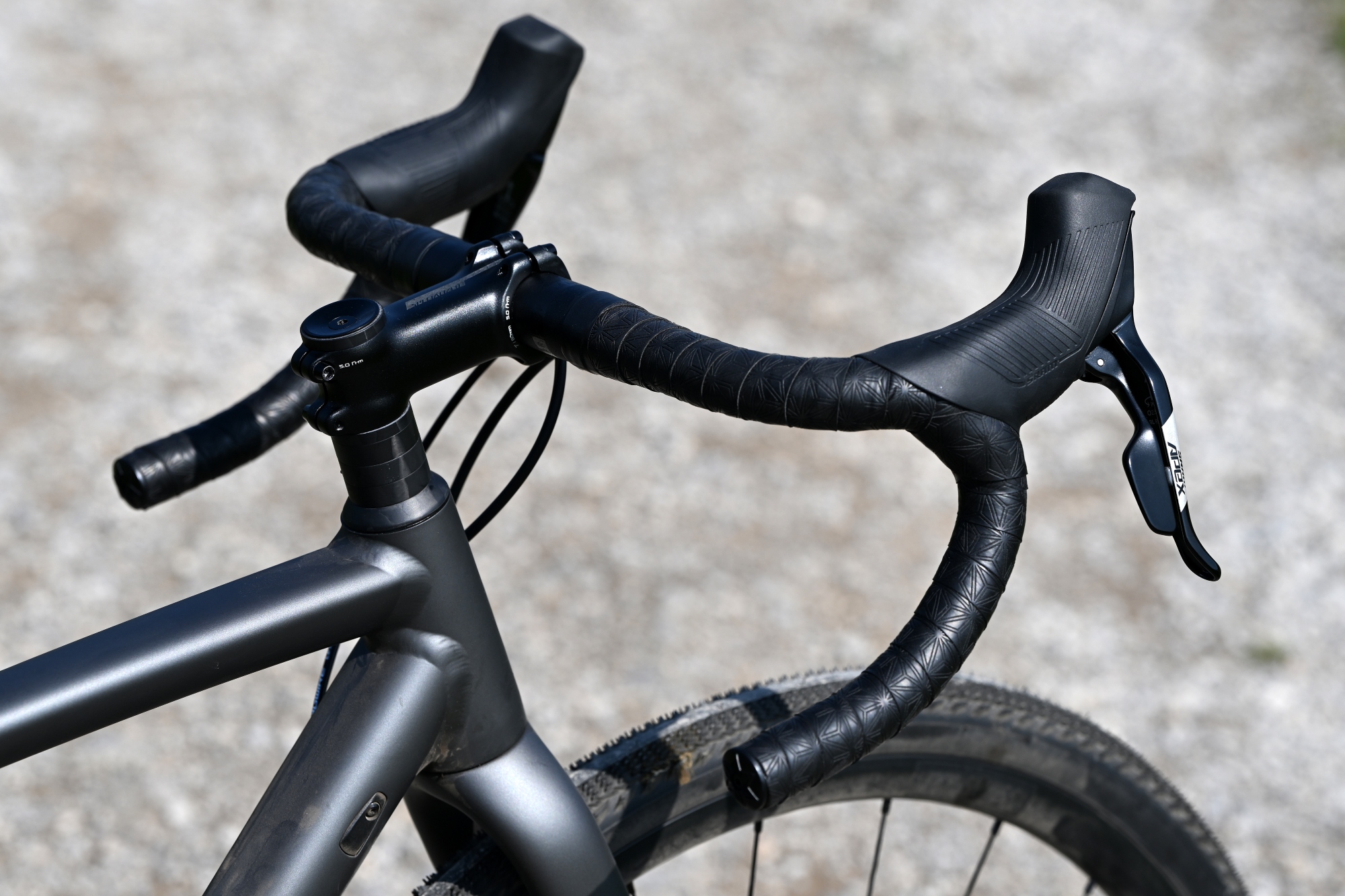
A traditional bar and stem means the Crux is easy to adjust and maintain
The DSW Comp is equipped with full mechanical SRAM Apex XPLR 1x12 drivetrain and hydraulic brakes. Wheels are DT Swiss rims on Specialized hubs fitted with Pathfinder Pro tyres. The rest of the finishing kit - bars, stem and seatpost - is Specialized branded alloy.
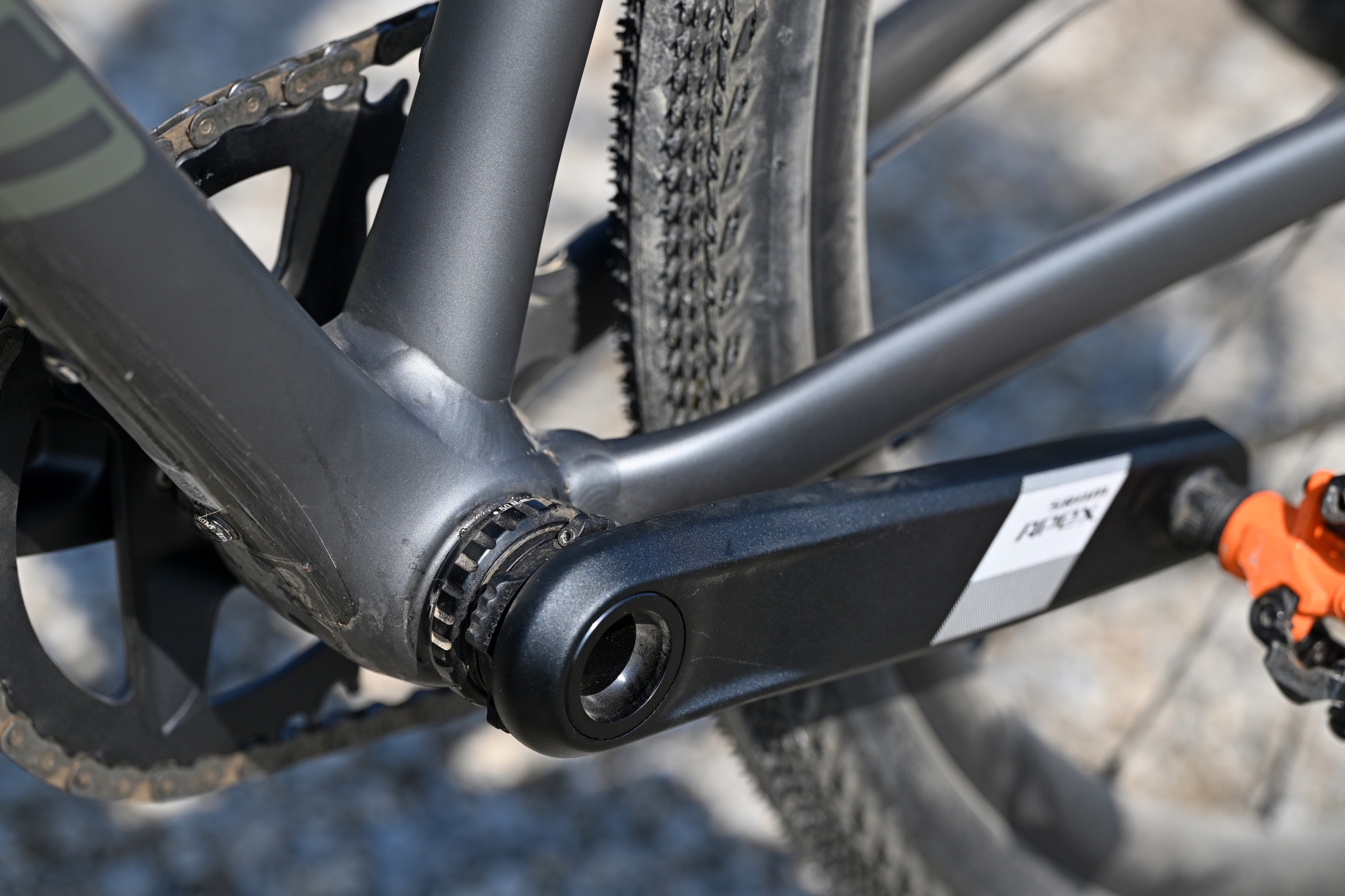
The Crux DSW used SRAM's 12-speed mechanical 1x Apex groupset
Our 52cm bike was kitted out with 170mm cranks, 400mm wide bars and an 80mm stem. The component sizing progresses with increasing frame sizes up to 440mm bars and 175mm cranks. It’s pleasing to see the smaller frame sizes equipped with components that feel a better fit for smaller riders.
The ride
The DSW may be a third of the price of the carbon Pro version we tested last year but we’d describe the ride in much the same way. It is an incredibly reactive bike and really wills you to push it hard.
The Crux’s sprightliness makes it a joy to ride. I found myself sprinting into every turn and transition and trying to put down more and more power on the straights. It’s fast and nimble on technical trails and descents, it’s a bike that makes riding feel like it the fun it should be.
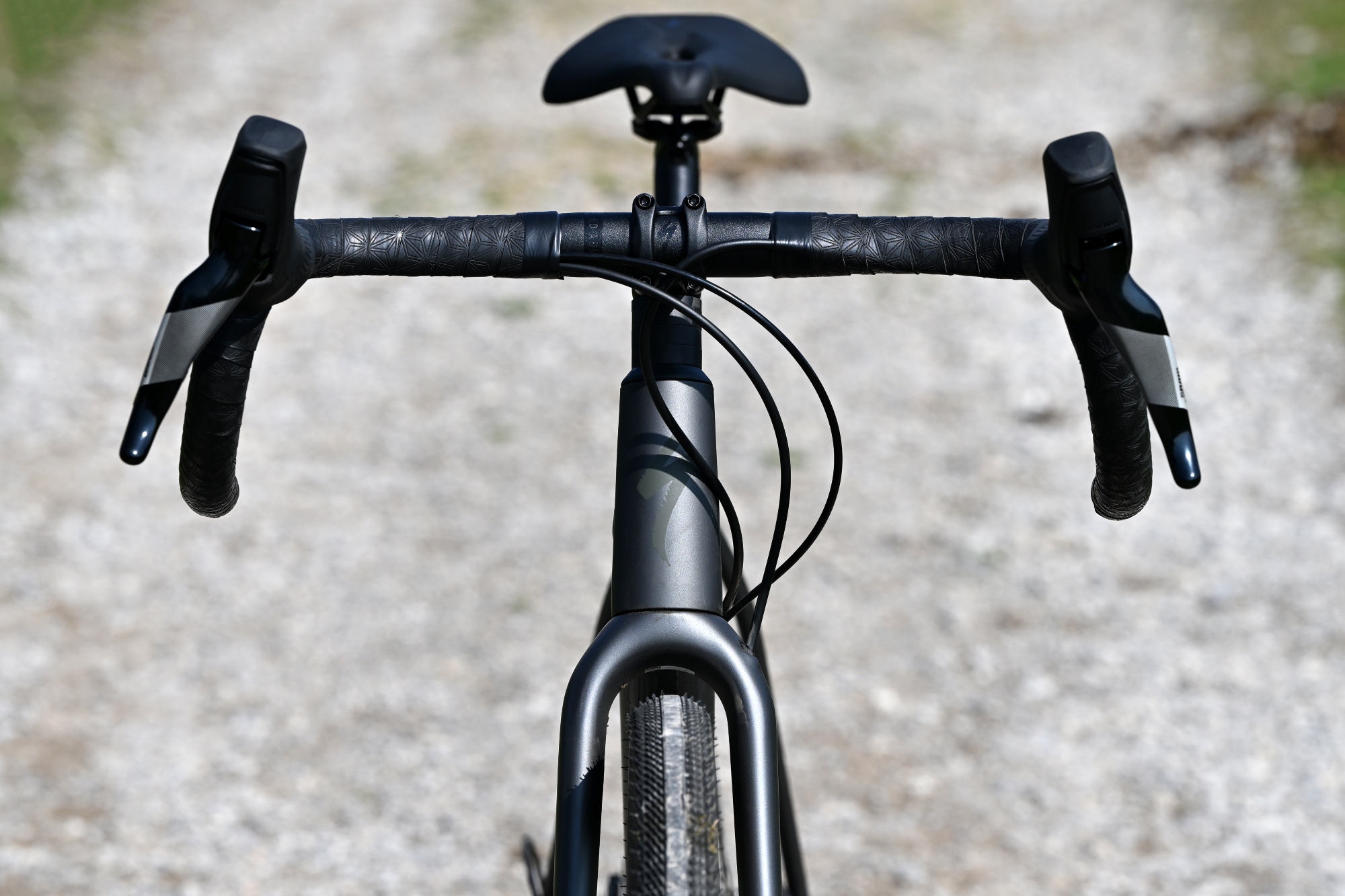
While the Crux DSW's frame is aluminium, the forks are carbon
The key thing holding back the Crux is its wheels and tyres. The alloy wheels are relatively heavy and feel a bit dull but, given the bike’s price, that’s not unusual or surprising. The Pathfinder tyres are designed for straight line, hard packed gravel and so just not well suited to UK conditions, there’s just not enough bite or grip to cope with our non-premium gravel, let alone CX mud.
Whilst designed as a race machine, there’s plenty of scope within the geometry and components to allow you to tweak to fit your own fit and achieve a more upright position for longer rides. Simply switching a few steerer tube spacers around allowed me to swap between all-day gravel endurance riding and CX racing. The ability to easily alter the fit of a bike at low or no cost is becoming harder nowadays with integrated cockpits becoming more commonplace, it really improves the flexibility of the Crux in comparison to the other gravel race bikes.
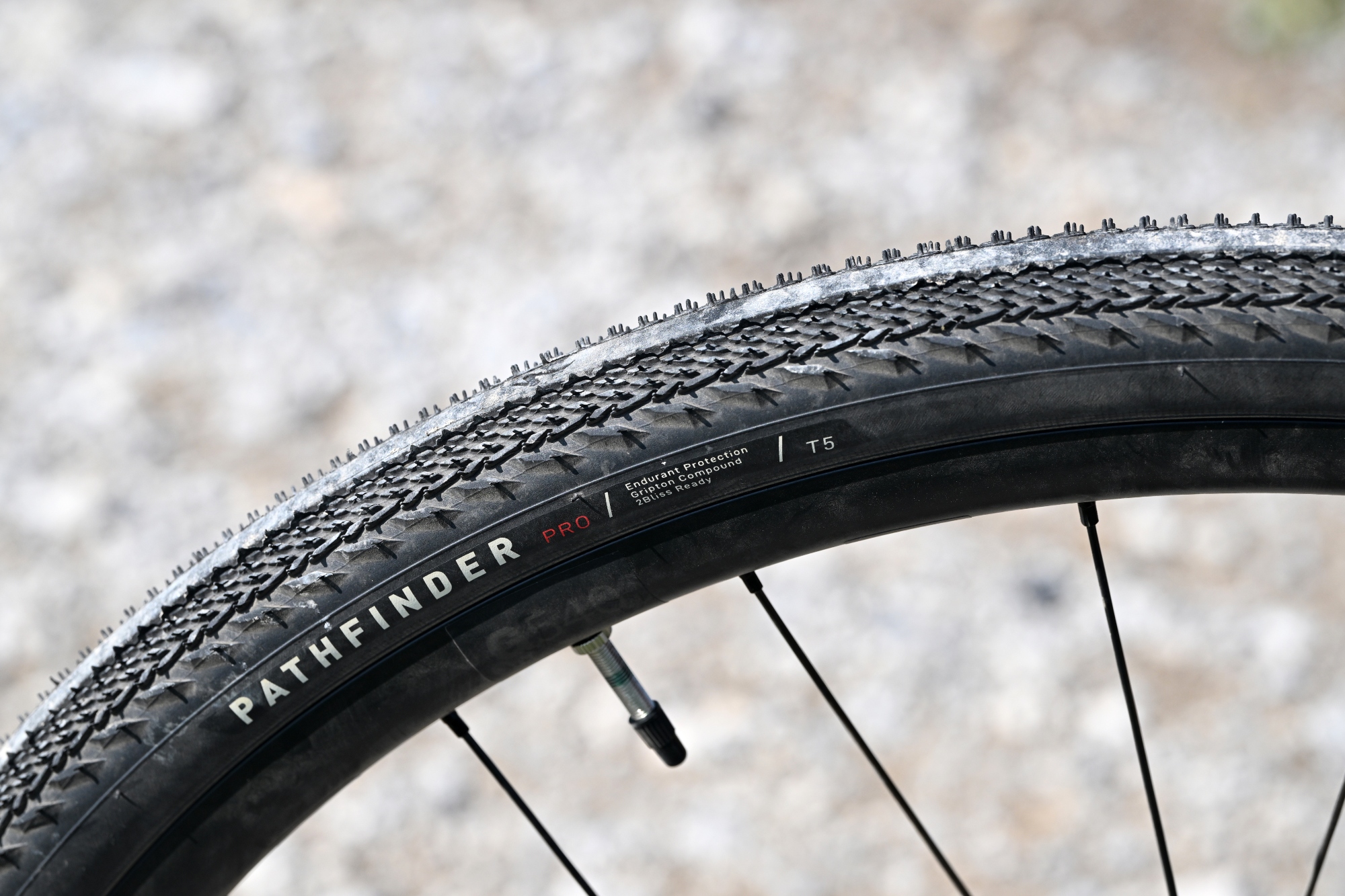
The Pathfinder tyres are best suited to hard-packed gravel
On the downside, I found it much harder to pace longer rides on the Crux as it encourages you to ride hard (believe me, no one will thank you for bike packing at CX pace). The race tuned stiffness of the frame and fork will also add some fatigue into longer stints in the saddle.
Despite its racing geometry, the Crux handles riding with bike packing gear pretty well. I wouldn’t want to carry kit for several days but happily managed the extra load of overnight kit in a tail pack and bar bag without sacrificing too much handling.
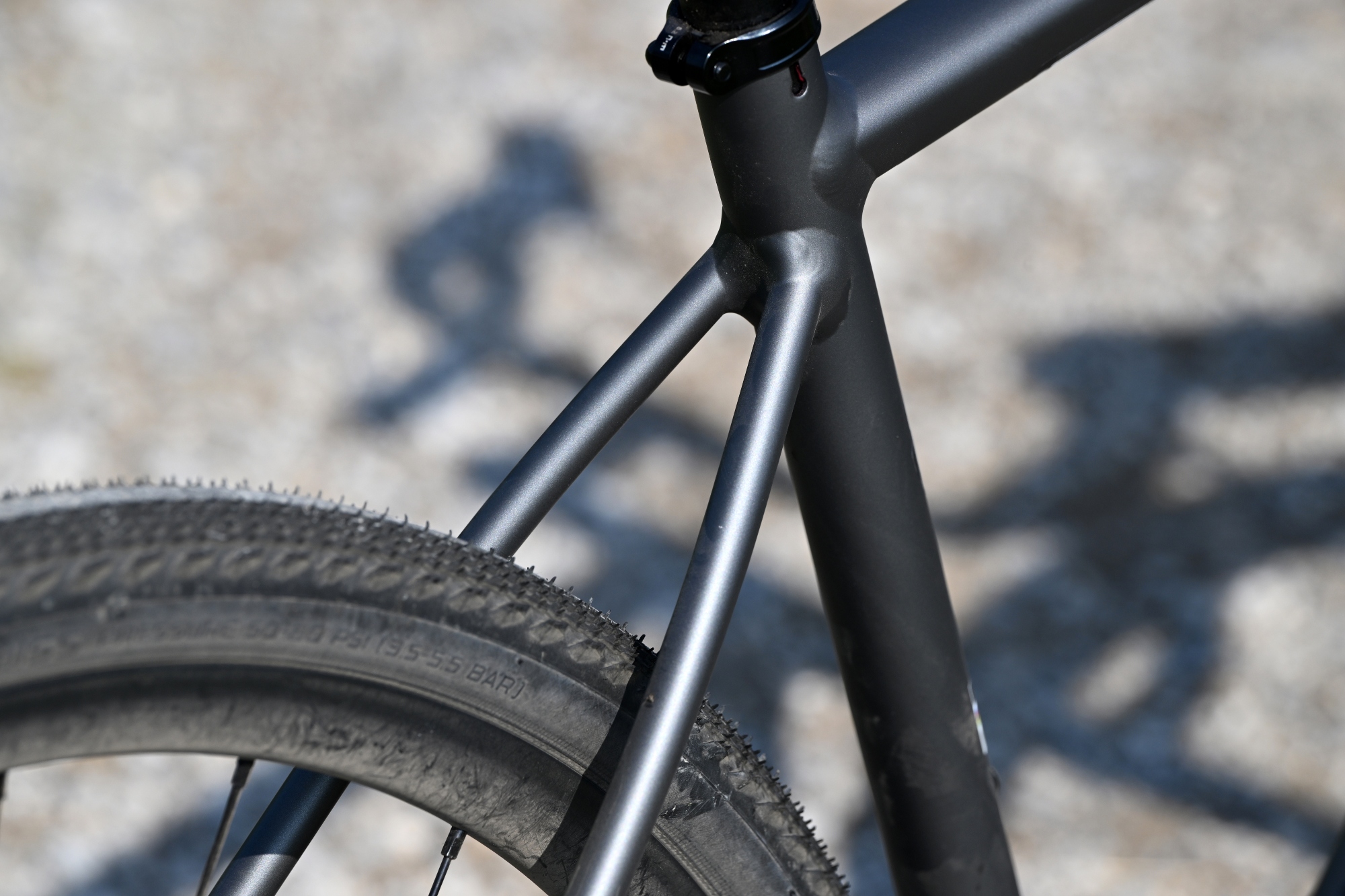
Generous clearance allows for 47mm wide tyres
Value
With its alloy frame and mechanical drivetrain the $2,600 / £2,300 Crux DSW Comp comes in at the lower end of our Gravel Bike of the Year price bracket and well below the carbon Crux bikes. As many bikes at this end of the range, there are some upgrades you may plan as savings allow starting with the wheels.
Unfortunately there’s only one DSW build available so the only way to spec electronic shifting is an expensive upgrade or an equally expensive full build (frameset $1,700 / £1,500).
Specs
- Frameset: Crux DSW frame with Fact carbon gravel fork
- Groupset: SRAM Apex XPLR 12-speed mechanical
- Wheels: DT Swiss G540 aluminum
- Tyres: 700 x 38mm 2Bliss ready Pathfinder Pro tyres
- Finishing kit: a collection of Specialized's own alloy stem, handlebars and seatpost
- Saddle: Body Geometry Power Sport, steel rails
- Price: $2,700 / £2,300
- Weight (52cm as tested): 9.5kg
Rachel has been writing about and reviewing bike tech for the last 15 years. Cynical by nature, Rachel never really trusts the marketing hype and prefers to give products a mighty good testing before deciding whether they're worth buying or not.
Rachel's first riding love is mountain biking where she's been European and UK 24hr Champion on more than one occasion. She's not just confined to the trails though and regularly rides - and occasionally races - on gravel and road too.